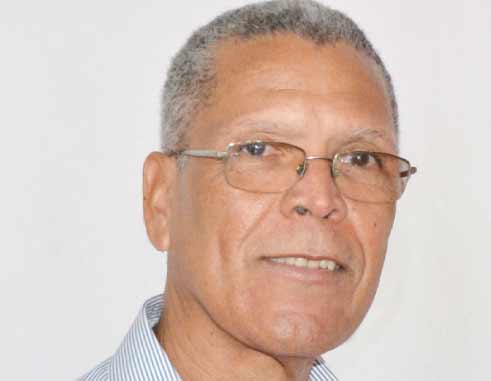 AS we discussed the training provided to public servants and government ministers at the beginning of this year, we applauded Prime Minister Chastanet’s stated intention to develop a professional civil service. As we continue our discussions on the need for Constitutional Reform, we also take note of the comments of the Constitutional Reform Commission on the development of our public service.
AS we discussed the training provided to public servants and government ministers at the beginning of this year, we applauded Prime Minister Chastanet’s stated intention to develop a professional civil service. As we continue our discussions on the need for Constitutional Reform, we also take note of the comments of the Constitutional Reform Commission on the development of our public service.
The Reform Commission framed this discussion of the role of the Public Service in the context of its performance of administrative or management functions, leading to a perception that the civil service function should evolve from the former to the latter.
While we will continue to have discussions on the proper role of the public service, we should not forget the training in public administration at university level which many public servants have availed themselves of, and of the training afforded by the Executive Management in Business Administration degree provided by the University of the West Indies over the last 25 years. This, in addition to the technical degrees and qualifications which more recent entrants to the service now generally possess.
So, as our Prime Minister promotes a more professional Public Service, we cannot help but wonder if his concerns are not more rooted in the ethical discharge of the Service’s functions than in its capacity to execute those technical and administrative roles. One of the issues which have contributed to this dilemma has been the introduction of contract officers to the Service and, particularly in the case of Permanent Secretaries, this has led to a distortion of its structure.
Obviously, the security of employment intended by “permanent” no longer exists at the most senior level of the Service and the independence which is associated with that security is diminished.
The introduction of contract officers to the Service has been a relatively new concept and many will recall the encouragement of those supportive of this policy following the election of 1997. In their view, public servants who had served under the UWP administration could not now possibly serve the new Labour Party administration. Twenty years later, we hear the same story, this time from the other side of the fence, with a Minister of the current government accusing the Public Service of thwarting the policies of the new UWP administration.
The Constitutional Reform Commission has, however, also commented on such claims, indicating that “The ‘inertia’ which is often complained about is, however, a necessary ‘check and balance’ which enables careful study of new policy”. So that when a spokesperson for the Labour Party at a recent press conference casually indicated that, in effect, a new government had to put its own people in place in order to get things done, we should all be concerned, as this statement implies that the politician has the solution, and that the Public Service has to be manipulated in order that those policies can be implemented within the politician’s own timeframe. No check, no balance.
This approach to governance must also have a chilling effect on public servants themselves as they now know that even thoughtful query of proposed government policy can lead to their being labeled negatively, with all the attendant consequences for promotion.
This is not to suggest that there will not be rogue elements in the Service whose political inclinations may misdirect them in the performance of their duties. But governments must resist this temptation to the pettiness of excusing their own poor performance by blaming that on the Public Service.
This issue of the distortion in the structure of the Public Service is compounded by that of the current role of the Minister of Government. Section 62 of the Constitution provides that: “The Governor General, acting in accordance with the advice of the Prime Minister, may, by directions in writing, assign to the Prime Minister or any other Minister responsibility for any business of the Government, including the administration of any department of government.”
The Constitution goes further and at Section 69 provides that “Where any Minister has been charged with responsibility for any department of government, he shall exercise general direction and control over that department; and subject to such direction and control, every department of government shall be under the supervision of a public officer whose office is referred to in this Constitution as the office of a permanent secretary.”
Unfortunately for us, the language used in our Constitution 50 years ago does not serve us very well today, as management has been substituted for administration by Ministers, and “general direction and control” has now been taken to mean the exercise of executive authority by Ministers.
Our Constitution requires reform and the role of the Minister must be properly defined because for the last 20 years Ministers have apparently felt a need to demonstrate their competence. The consequence is that Ministers who have no obvious qualifications in the disciplines required are often to be found pontificating on things that they know little about.
Next week, we look at racism.










